Today was the day for the installation of the new finial, crafted by Kelly Caseley, above the door to St. Paul’s Anglican Church. The new finial is a bang-on reproduction of the original; Kelly did great work.
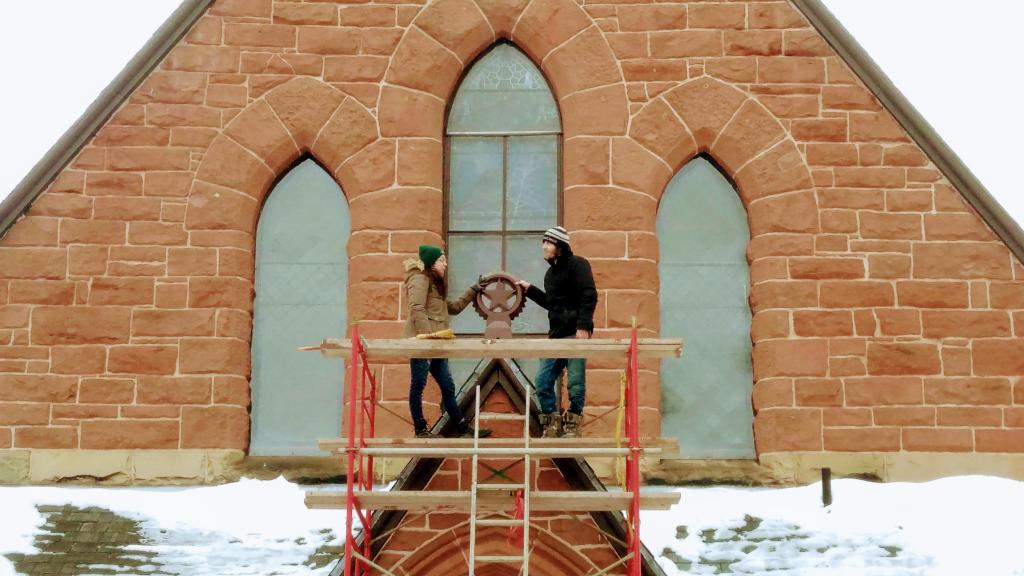
This is the January 1, 2019 schedule.
Maybe you’re looking for the 2020 Levee Schedule?
This is the 2019 levee schedule for New Years Day, January 1, 2019 for Charlottetown and Prince Edward Island.
Show levees that are ages 19+ Show only Charlottetown-area levees
| Organization | Location | Starts | Ends | ♿ Accessible | All Ages |
|---|---|---|---|---|---|
| Timothy’s World Coffee/Anne & Gilbert, The Musical | Timothy’s World Coffee 154 Great George Street, Charlottetown, PE |
8:00 AM | 10:00 AM | Yes | Yes |
| The Guild | The Guild 111 Queen Street, Charlottetown, PE |
9:00 AM | 10:30 AM | Yes | Yes |
| Lieutenant Governor | Government House 1 Terry Fox Drive, Charlottetown, PE |
10:00 AM | 11:30 AM | Yes | Yes |
| Silver Fox Curling and Yacht Club | Silver Fox Curling and Yacht Club 110 Water Street, Summerside, PE |
10:00 AM | 12:00 PM | Yes | No |
| Upstreet Craft Brewing | Upstreet Craft Brewing 41 Allen St, Charlottetown, PE |
10:00 AM | 10:00 PM | Yes | Yes |
| Mayor of Charlottetown | Charlottetown City Hall 199 Queen St, Charlottetown, PE |
10:30 AM | 12:00 PM | Yes | Yes |
| PEI Women’s Institute | Farm Centre 420 University Ave, Charlottetown |
10:30 AM | 12:00 PM | Yes | Yes |
| Canoe Cove Community Association | Canoe Cove Schoolhouse 1066 Canoe Cove Road, Canoe Cove, PE |
11:00 AM | 1:00 PM | Yes | Yes |
| The Haviland Club | The Haviland Club 2 Haviland St, Charlottetown, PE |
11:00 AM | 1:00 PM | Yes | Yes |
| HMCS Queen Charlotte | HMCS Queen Charlotte 210 Water Street, Charlottetown, PE |
11:30 AM | 1:00 PM | Yes | Yes |
| University of PEI | School of Sustainable Design Engineering 550 University Ave., Charlottetown, PE |
11:30 AM | 1:00 PM | Yes | Yes |
| Mayor of Kensington | Broadway 45 45 Broadway St N, Kensington, PE |
12:00 PM | 1:30 PM | Yes | Yes |
| Prince Edward Island Regiment | Queen Charlotte Armoury 3 Haviland Street, Charlottetown, PE |
12:00 PM | 1:30 PM | Yes | Yes |
| Town of Stratford | Stratford Town Centre 234 Shakespeare Dr., Stratford, PE |
12:00 PM | 1:30 PM | Yes | Yes |
| PEI Brewing Company | PEI Brewing Company 96 Kensington Road, Charlottetown, PE |
12:00 PM | 2:00 PM | Yes | Yes |
| Seniors Active Living Centre | Bell Aliant Centre 550 University Avenue, Charlottetown, PE |
12:30 PM | 2:00 PM | Yes | Yes |
| St. John’s Lodge No. 1 and Victoria Lodge No. 2 | Masonic Temple 204 Hillsborough St., Charlottetown, PE |
1:00 PM | 2:30 PM | No | Yes |
| Andrews of Stratford | Andrews of Stratford 355 Shakespeare Drive, Stratford, PE |
1:00 PM | 3:00 PM | Yes | Yes |
| Town of O’Leary | Maple Leaf Curling Club 426 Main Street, O’Leary, PE |
1:00 PM | 3:00 PM | Yes | Yes |
| Town of Souris | Eastern Kings Sportsplex 203 Main Street, Souris, PE |
1:00 PM | 3:00 PM | Yes | Yes |
| Village of Morell, Morell Lions Club, Northside Communities Initiative | Morell Community Rink 59 Queen Elizabeth, Morell, PE |
1:00 PM | 3:00 PM | Yes | Yes |
| Royal Canadian Legion - Tignish & Town of Tignish | Tignish Legion 221 Phillip Street, Tignish, PE |
1:00 PM | 5:00 PM | Yes | No |
| Royal Canadian Legion - Wellington | Wellington Legion 97 Sunset Dr, Wellington, PE |
1:00 PM | 5:00 PM | Yes | No |
| Roman Catholic Diocese of Charlottetown | SDU Place – Old Bishop’s Palace 45 Great George Street, Charlottetown, PE |
1:30 PM | 2:30 PM | Yes | Yes |
| City of Summerside | City Hall 275 Fitzroy Street, Summerside, PE |
1:30 PM | 3:00 PM | Yes | Yes |
| Town of Cornwall | Cornwall Town Hall 39 Lowther Drive, Cornwall, PE |
1:30 PM | 3:00 PM | Yes | Yes |
| Royal Canadian Legion - Summerside | Summerside Legion 340 Notre Dame St., Summerside, PE |
1:30 PM | 4:30 PM | Yes | No |
| Copper Bottom Brewing | Copper Bottom Brewing 567 Main Street, Montague, PE |
2:00 PM | 3:00 PM | Yes | Yes |
| Garden Home | Garden Home 310 North River Road, Charlottetown, PE |
2:00 PM | 3:00 PM | Yes | Yes |
| Royal Canadian Legion - Charlottetown | Charlottetown Legion 99 Pownal Street, Charlottetown, PE |
2:00 PM | 3:00 PM | Yes | No |
| Town of Borden-Carleton | Borden-Carleton Library 244 Borden Avenue, Borden-Carleton |
2:00 PM | 4:00 PM | Yes | Yes |
| Royal Canadian Legion - Miscouche | Miscouche Legion 94 Main Drive, Miscouche, PE |
2:00 PM | 6:00 PM | Yes | No |
| The Kitchen Witch | The Kitchen Witch 949 Long River Road, Long River, PE |
2:30 PM | 4:30 PM | Yes | Yes |
| Premier Wade MacLauchlan | Confederation Centre of the Arts 145 Richmond St, Charlottetown, PE |
3:00 PM | 4:30 PM | Yes | Yes |
| Benevolent Irish Society | Hon. Edward Whelan Irish Cultural Centre 582 North River Road, Charlottetown, PE |
3:00 PM | 5:00 PM | Yes | Yes |
| Royal Canadian Legion - Ellerslie | Ellerslie Legion 1136 Ellerslie Road, Ellerslie, PE |
3:00 PM | 7:00 PM | Yes | No |
| 200 Wing Royal Canadian Air Force Association | The Wing 329 North Market Street, Summerside, PE |
4:00 PM | 6:00 PM | Yes | No |
| Charlottetown Curling Club | Charlottetown Curling Complex 241 Euston St, Charlottetown, PE |
3:00 PM | 6:00 PM | No | No |
| Sport Page Club | Sport Page Club 236 Kent St, Charlottetown, PE |
4:00 PM | 6:00 PM | No | No |
| The Alley | Murphy’s Community Centre 200 Richmond Street, Charlottetown, PE |
4:00 PM | 6:00 PM | Yes | No |
| Olde Dublin Pub | Olde Dublin Pub 131 Sydney St., Charlottetown, PE |
5:00 PM | 8:00 PM | No | Yes |
| Charlottetown Firefighters Club | Charlottetown Fire Department 89 Kent Street, Charlottetown, PE |
5:00 PM | 12:00 AM | Yes | No |
The levee schedule is covered under a Creative Commons Attribution, NonCommercial, ShareAlike License.
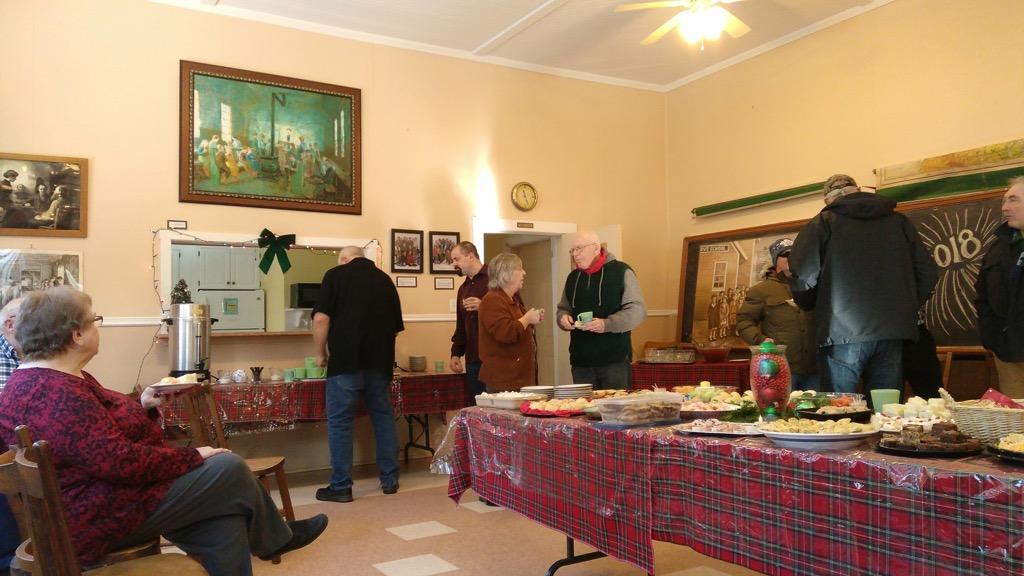
If you’re a new friend of the blog you may have missed this fascinating tool of cats and mice, related to Matthew Rainnie on CBC Mainstreet on September 22, 2000 (9 days before Oliver was born!).
I have always loved making radio with Matthew, and I think this piece was a high point for us.
(The issue of mice on Marion Island is ongoing, 18 years later).
In 2013, on our last night in Tokyo, Oliver and I went out for conveyor-belt-sushi to Pintokona in the Roppongi district.
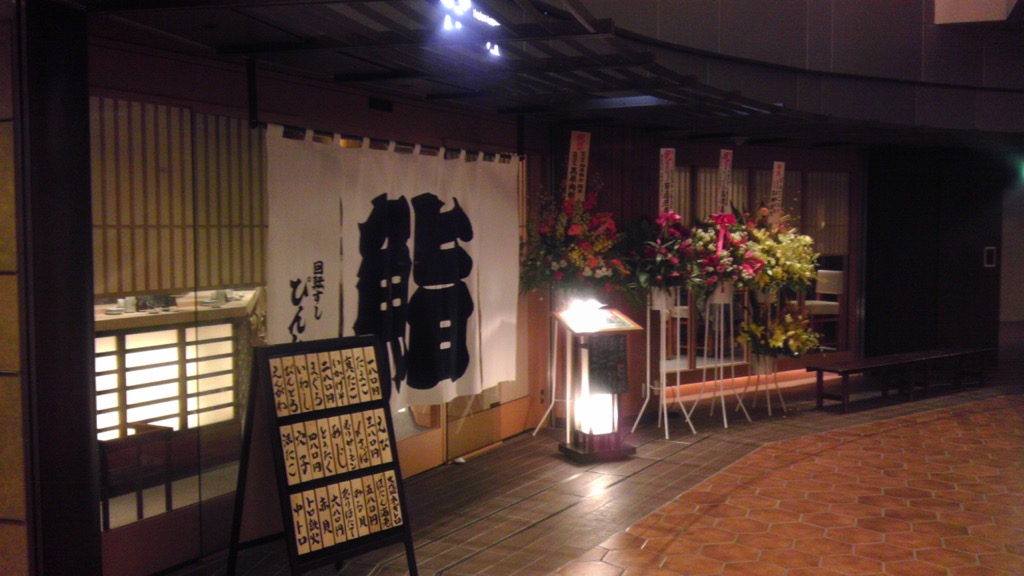
After supper we wandered up the street to the Aoyama Book Center Roppongi, where we spotted a copy of Tsuyoshi Takashiro’s book Life Packing, a delightful rumination that, among other things, is an unintentional recapitulation of George Carlin’s place for your stuff routine.
I’d seen the book earlier on our trip, neglected to purchase it, and regretted the decision. Finding it again gave me a second chance, and I purchased it immediately, which also gave me a chance to experience the lovely Japanese style for wrapping books in a bookstore in paper upon purchase.
I learned today that the Aoyama Book Center closed earlier this year and that its space is now occupied by the newly-opened 文喫 (Bunkitsu), a bookstore with a cover charge:
Once you’ve checked in, take your free cup of coffee or tea and wander endlessly through books on humanities, nature, art and design, all of which have been thoughtfully curated by the book lovers of Yours Book Store. Every book is for sale, but you can also spend an hour, 5 hours or the whole day and not buy a thing. And if you get hungry, they even have a small café that will sell you lunch or a light snack.
I’m inclined to jump on a plane right now; barring that, here’s a walkthru video from YouTube.
PEI Green Party leader Peter Bevan-Baker on the importance of priorities:
Politics is how we make collective decisions, and it touches on every aspect of our shared lives. Part of the art of politics, I believe, is in choosing what priorities get placed at the front of the line. The word priority quite literally means “prior to” – what things need to be done prior to the rest. In that sense you can’t have a whole bunch of priorities, only a few.
I think regular blogging should be an expected duty of any member of the legislature; it’s a form of communication tailor-made for the profession, and I so appreciate Peter’s regular insights.
PC MLA Brad Trivers is a thoughtful blogger too; I’d like to read 27 MLAs’ blogs, though, not just two, and wish others would join in.
Of all the foods of the world that have come to be regularly available in Charlottetown in the last 25 years, among my favourites is bibimbap, a Korean rice dish available at Mr. Sushi, at Seoul Food and at Ta-Ke Sushi.
Each place has its own way of preparing bibimbap, but what’s common to all is a bed of rice topped with various things–meats, vegetables, often an egg–and then, at your option, slathered in chili sauce. It’s very good.
Here’s mine, from lunch today at Mr. Sushi (and here’s the sound of it cooking itself in the heated bowl, recorded in 2013):

Greta Thunberg is an autistic teenager from Sweden. She is changing the world with her clear-eyed talk about climate change (watch her TEDx talk or her speech at the COP24 last week).
It snowed yesterday, quite a lot. School was closed, and then it was closed again today given the condition of rural roads. I stuck my phone on the front screen door this morning as the snowblower and its symbiotic dump trucks moved by 100 Prince Street. This method of clearing and removing the snow happens across downtown Charlottetown after a big storm: the snow gets gathered into the middle of the street into a big pile, and then the giant blower gets it into dump trucks that cart it off to the snow dump.
I first encountered Euan Semple when he spoke at Reboot 11 in 2009, and I’ve been a reader of his blog, off and on, for the years since.
Recently I noticed that he’s been referring to a sideline as a truck driver, and he connected me with this post from the summer that provides a little of the backstory to this.
Career corner-turns are fascinating to me–journalist starts working for the man, pilot becomes dolphin trainer, etc.–and I’m enjoying reading about Euan’s bifurcated adventures.
(That Reboot was the one that was sponsored, in part, by my friend Ton–you can see him at the very beginning of Euan’s talk, taking a photos–and it will be ten years since that Reboot in 2019; there’s an interesting cache of videos shot that year here. That was the Reboot when Catherine and I left Oliver in Canada and attended together).
Like last year, I invite you to join me in a small intervention into the service economy that I call The 12 Tips of Christmas.
The idea is simple: every time you leave a tip in a restaurant or coffee shop this holiday season, leave a percentage that matches the day of December.
So today, for example, I tipped 18% because it’s December 18.
Tomorrow I will tip 19%.
And on the last day of the year I will tip 31%.
Workers in restaurants work hard for low wages: the holiday season, with its harried customers, variable weather, and other pressures, is a time to particularly recognize their service.
My hope is, of course, that by exercising our tipping muscles upwards, we all become more generous tippers year-round.
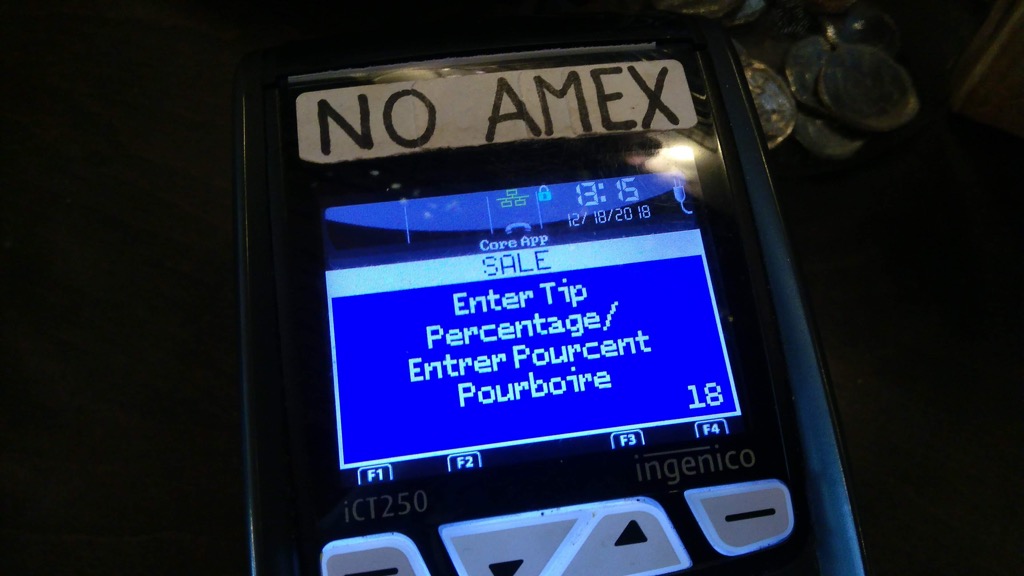
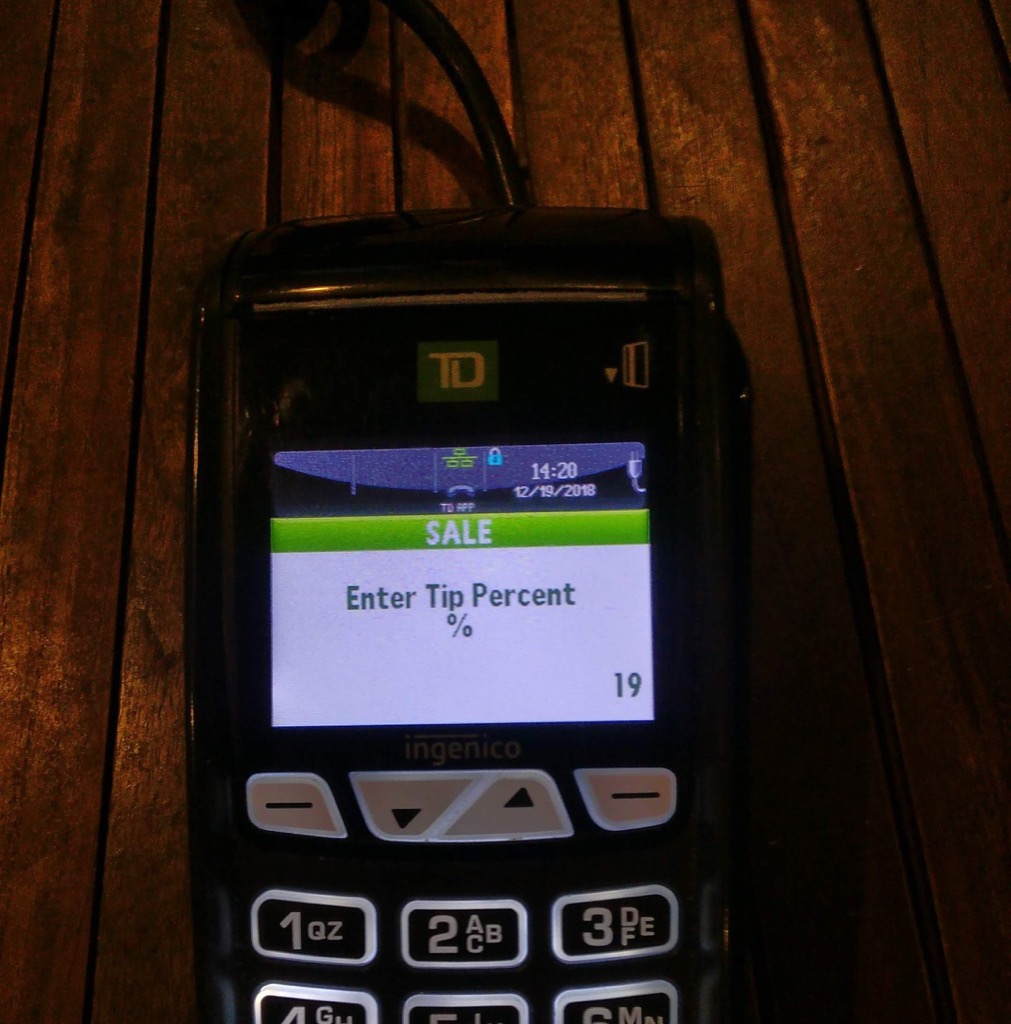

 I am
I am